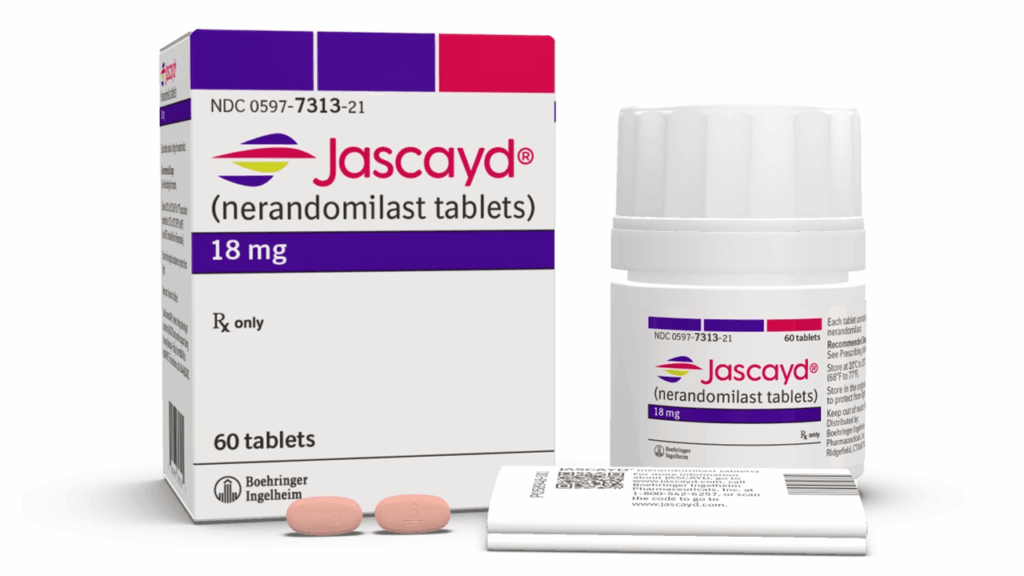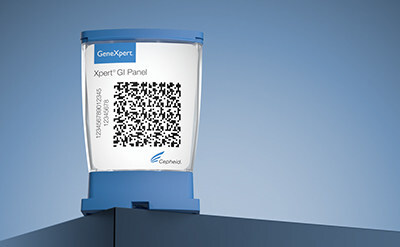The FDA has approved Boehringer Ingelheim’s Jascayd (nerandomilast) tablets for the treatment of idiopathic pulmonary fibrosis (IPF) in adults. This makes it the first new therapy for this rare and progressive lung disease in more than a decade.
The oral treatment introduces a new mechanism of action for slowing lung function decline in people living with IPF.
Before Jascayd’s approval, treatment options were limited to antifibrotic drugs that slow, but do not stop, fibrosis progression.
Related: Top 5 Best-Selling Respiratory Disease Drugs to Watch in 2025
IPF is a chronic, irreversible disease that scars lung tissue, making it increasingly difficult to breathe. Over time, the scarring worsens, leading to progressive respiratory failure.
IPF most often affects adults aged 60 to 70 and impacts about 200,000 people in the US and up to 3.6 million globally. Beyond clinical management, IPF is also a significant occupational health concern. CDC surveillance data from 2020 through 2022 identified 67,843 IPF-related deaths in the US, with an estimated one in five potentially linked to workplace exposures.
The last FDA-approved therapies for IPF, Ingelheim’s Ofev (nintedanib) and InterMune’s (now Roche’s) Esbriet (pirfenidone), were introduced in 2014.
Unlike Ofev and Esbriet, Jascayd inhibits phosphodiesterase 4B (PDE4B) to regulate cellular signaling linked to inflammation and fibrosis rather than acting directly on growth-factor or cytokine pathways.
XTALKS WEBINAR: Using Early Evidence Generation to Drive Commercial Success
Live and On-Demand: Monday, November 24, 2025, at 11am EST (5pm CET/EU-Central)
Register for this free webinar to learn how to discover why delaying evidence generation by even two years can cost you access, pricing and partnerships.
Jascayd is a preferential inhibitor of PDE4B, an enzyme involved in inflammatory and fibrotic processes in the lungs. By selectively targeting PDE4B, the drug exerts both antifibrotic and immunomodulatory effects. This dual action helps slow the decline in forced vital capacity (FVC), a key measure of lung function. This means Jascayd may help slow disease progression by reducing cellular activity that drives inflammation and scarring in the lungs.
Approval was supported by two randomized, double-blind, placebo-controlled Phase III trials: FIBRONEER-IPF and a second study (NCT04419506) — that evaluated efficacy and safety in adults with IPF. The primary endpoint was absolute change from baseline in FVC at 52 weeks. Participants receiving 18 mg or 9 mg of nerandomilast had smaller FVC declines (–106 mL and –122 mL, respectively) compared with placebo (–170 mL), demonstrating slower disease progression.
Improvements were observed as early as two weeks and continued through Week 52.
The recommended dose is 18 mg taken orally twice daily, approximately 12 hours apart. For patients who experience intolerance, the dose may be reduced to 9 mg twice daily, except in those concurrently taking pirfenidone.
Across both pivotal studies, nerandomilast showed a generally well-tolerated safety profile. The most common side effects (≥5%) included diarrhea, COVID-19, upper respiratory tract infection, depression, decreased weight and appetite, nausea, fatigue, headache, vomiting, back pain and dizziness. Discontinuation due to adverse events occurred in 15% of patients on the higher dose, primarily because of diarrhea.
No boxed warnings or special precautions are listed in the approved label.
In recent years, several investigational therapies for IPF were also under consideration, but did not advance.
PRM-151 (recombinant pentraxin-2) from Roche and pamrevlumab (anti-CTGF) from FibroGen were both discontinued in 2024. Roche terminated the Phase III STARSCAPE trial of PRM-151 after a futility analysis found it unlikely to meet its primary endpoint, though no new safety concerns were identified. FibroGen ended its pamrevlumab program following two unsuccessful Phase III pancreatic cancer trials, implementing a corporate restructuring that halted remaining research across indications.
With these setbacks in mind, Jascayd’s approval represents a huge step forward for patients and clinicians seeking new treatment options in IPF.
According to Boehringer Ingelheim, the company will make the drug available in the US following FDA clearance and has also submitted regulatory filings in the European Union (EU), Japan and China.
If you want your company to be featured on Xtalks.com, please email [email protected].












Join or login to leave a comment
JOIN LOGIN